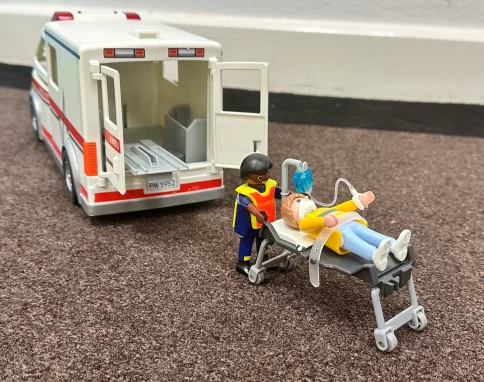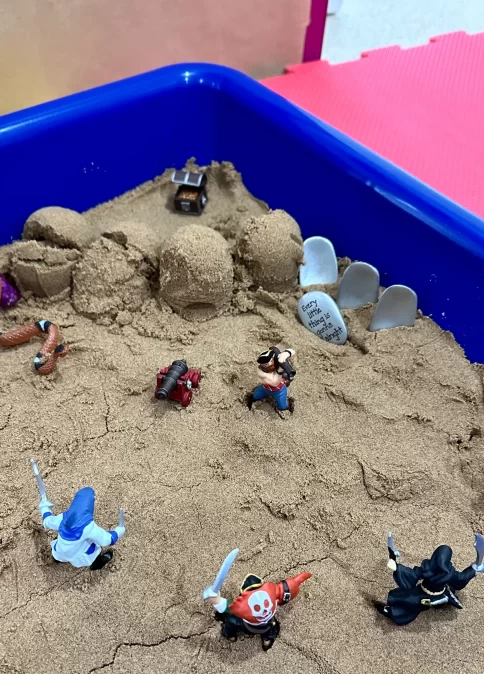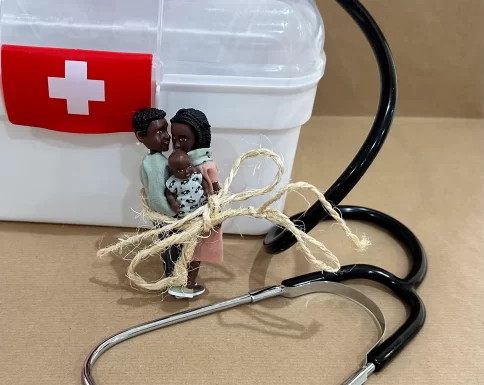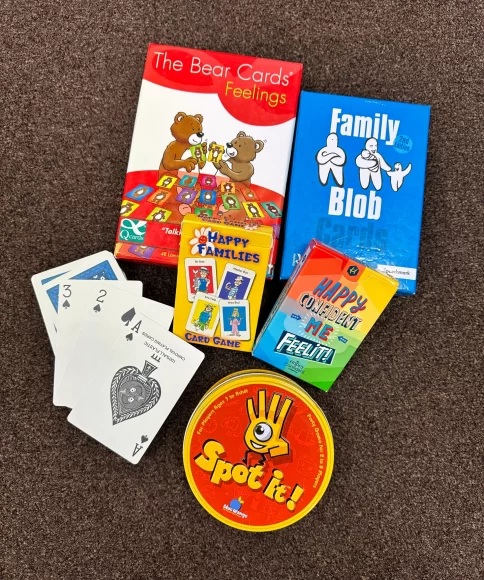
What is Play Therapy?
Play Therapy is a therapeutic intervention for children that uses play as a way of helping them process their feelings and life experiences. When children play, they naturally relax and find it easier to explore and express themselves in a way that is both comfortable and empowering.
Play Therapy offers children a safe and consistent environment to share how they feel in a playful way, using the toys and creative materials. The child leads and Play Therapist follows while tracking or reflecting emotions expressed through their chosen metaphor of play.
Non-directive Play Therapy was developed specifically for children by Axline (1969), drawing inspiration from Roger's person-centred approach (Rogers 1951). The Eight Basic Principles of Non-Directive Play Therapy (Axline) are:
The Play Therapist:
- Develops a warm and friendly relationship with the child.
- Accepts the child as she or he is.
- Establishes a feeling of permission in the relationship so that the child feels free to express his or her feelings completely.
- Is alert to recognise the feelings the child is expressing and reflects these feelings back in such a manner that the child gains insight into his/her behaviour.
- Maintains a deep respect for the child’s ability to solve his/her problems and gives the child the opportunity to do so. The responsibility to make choices and to institute change is the child’s.
- Does not attempt to direct the child’s actions or conversations in any manner. The child leads the way, the therapist follows.
- Does not hurry the therapy along. It is a gradual process and must be recognised as such by the therapist.
- Only establishes those limitations necessary to anchor the therapy to the world of reality and to make the child aware of his/her responsibility in the relationship.


Why Play Therapy?
Play Therapy is developmentally appropriate for children as it allows them to express themselves naturally without the need for words, and they still experience feeling heard and understood. Play Therapy can be helpful for neurodiverse children as their unique way of being is fully embraced by the Play Therapist.
Focusing on a child’s strengths and positive qualities provides them with opportunities for success. Experiencing a sense of mastery and accomplishment in Play Therapy can help the child to feel empowered. Consequently, this can have a positive impact on their wider environment outside of Play Therapy.
How can Play Therapy
help your child?
Play Therapy can...
- build confidence.
- develop self-awareness.
- foster resilience.
- improve social awareness.
- increase imagination.
- promote independence.
- release built-up feelings.
How can Play Therapy
help you?
Play Therapy can…
- offer you a space to share your thoughts.
- develop understanding of your child’s needs.
- help reduce feelings of stress in your daily life.
- strengthen your relationship with your child.
Play Therapy can be helpful for…
Play Therapy can provide support for a range of challenges or difficulties a child may be facing, including but not limited to:
Anxiety
Attachment difficulties
Bereavement or loss
Bullying
Developmental delay
Confidence issues
Friendship or social struggles
Care experience
Illness
Family breakdown
Regulation difficulties
Self-esteem issues
Sleeping, eating or toileting issues
Trauma
What a BAPT Play Therapist means for you.
By choosing a BAPT Registered Play Therapist®, you can trust that your child is in capable hands, receiving an evidence-based intervention tailored to their individual needs.
As a BAPT Registered Play Therapist® I have:
- Completed a Masters level Play Therapy training (accredited by BAPT).
- A current PVG or Disclosure check.
- Public Liability and Professional Indemnity Insurance.
- Completed more than 100 hours of clinical practice (during the course).
- Completed more than 60 hours of personal therapy during the course (optional thereafter).
- Committed to the BAPT Ethical Basis for Good Practice in Play Therapy.
- Ongoing clinical supervision of their Play Therapy practice.

Get in touch

I’d appreciate the chance to explore together whether play therapy is the right approach for your child. You can reach me through the contact form- I look forward to hearing from you.
Your message matters to me, and I’ll be in touch as soon as I’m able. If you haven’t heard back, please check your junk or spam folder- occasionally my replies are filtered there.

